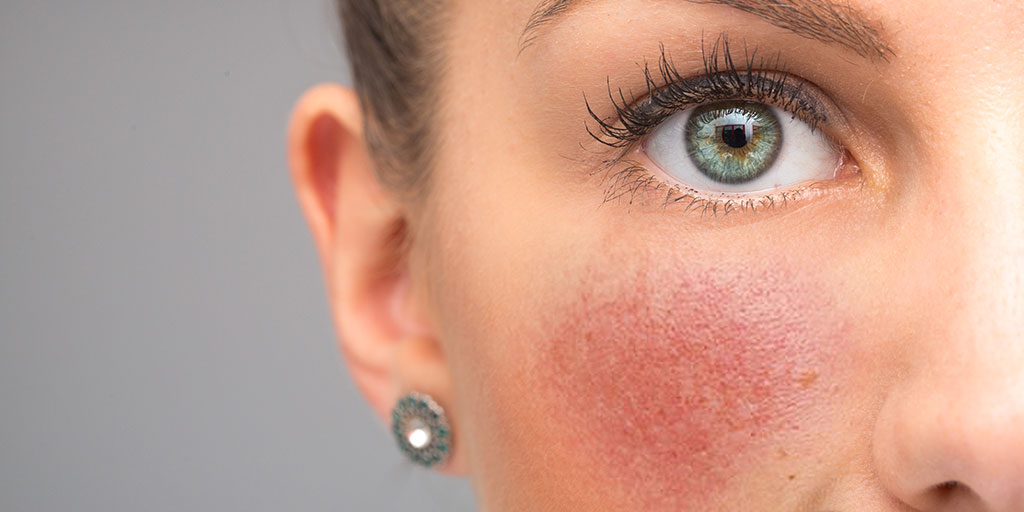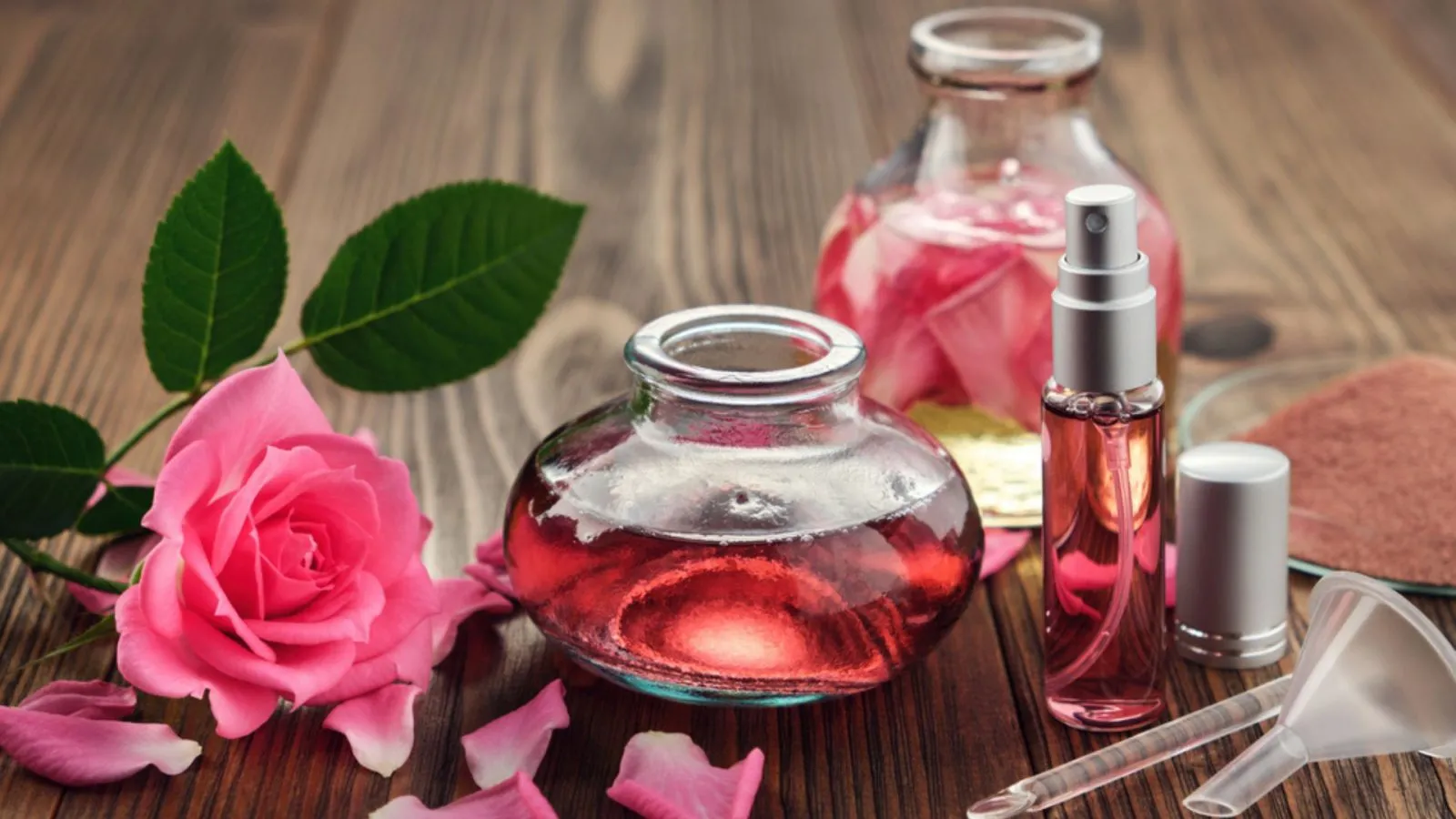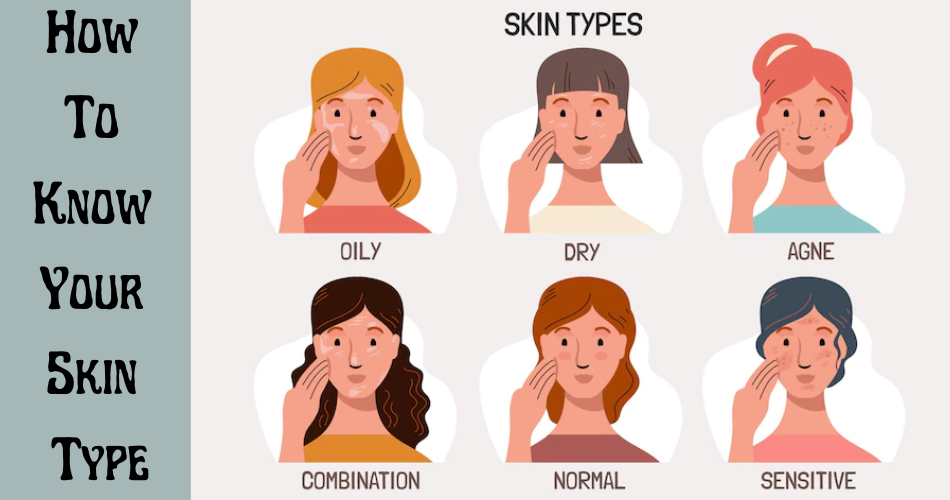
Rosacea is a chronic skin condition that primarily affects the face, causing redness, flushing, and visible blood vessels. It most commonly affects middle-aged adults and is more common in fair-skinned individuals, particularly those of northern or eastern European descent. The main causes of rosacea are not entirely understood, but it is believed to be a combination of genetic and environmental factors
What Is Rosacea
Rosacea is a chronic skin condition that primarily affects the face, causing redness, flushing, and visible blood vessels. It most commonly affects middle-aged adults and is more common in fair-skinned individuals, particularly those of northern or eastern European descent. Symptoms of rosacea typically begin as a tendency to flush or blush easily, which can progress to persistent redness, visible blood vessels, and in some cases, pimples or bumps on the face. In some cases, the nose may become thickened and bumpy, a condition called rhinophyma. In severe cases, rosacea can also cause eye problems, such as dryness, irritation, or even vision loss. The exact cause of rosacea is not known, but it is believed to be a combination of genetic and environmental factors. Triggers such as sun exposure, stress, alcohol consumption, and certain foods, can worsen the symptoms. There is no cure for rosacea, but it can be managed with a combination of lifestyle changes, skincare, and medical treatments. The exact and main causes of rosacea are not known, but several factors are believed to contribute to its development,
Causes Of Rosacea
Rosacea is a common skin condition that causes redness, flushing, and visible blood vessels on the face. The exact and main causes of rosacea are not known, but several factors are believed to contribute to its development, including:
Genetics:
Some people may be genetically predisposed to developing rosacea.
Microorganisms:
Certain microorganisms like the bacterium Helicobacter pylori have been found to be more common in people with rosacea.
Inflammation:
Rosacea is characterized by inflammation, which may play a role in its development.
Environmental factors:
Exposure to certain environmental factors such as sun exposure, wind, cold, or hot temperatures, humidity, and spicy or hot foods can trigger the symptoms of rosacea.
Demodex mites:
It’s suggested that overpopulation of Demodex mites, a type of mite that lives on human skin, can contribute to the development of rosacea.
Hormonal changes:
Hormonal fluctuations, such as those that occur during menopause, may also play a role in the development of rosacea.
Certain medications:
Certain medications such as steroids, vasodilators
Emotional stress:
Stress and anxiety can trigger or worsen the symptoms of rosacea.
Alcohol consumption:
Drinking alcohol, particularly red wine, can cause flushing and may trigger rosacea symptoms.
Hot drinks:
Consuming hot drinks, such as tea and coffee, can also cause flushing and may trigger rosacea symptoms.
Skincare products:
Certain skincare products, particularly those that contain alcohol, fragrances, or other irritants, can trigger or worsen the symptoms of rosacea.
Certain skin care treatments:
Procedures such as microdermabrasion, chemical peels, and laser therapy may aggravate rosacea symptoms.
It’s important to note that different factors may cause or exacerbate rosacea symptoms in different people, and in some cases, a combination of these factors may be responsible. It’s always recommended to consult with a dermatologist if you suspect you have rosacea, to get an accurate diagnosis and treatment plan.
What Is The Main Cause Of Rosacea
The main cause of rosacea is not entirely understood, but it is believed to be a combination of genetic and environmental factors. While the exact cause of rosacea is unknown, researchers have identified several potential contributing factors, such as:
Abnormalities in the blood vessels:
Rosacea is characterized by dilated blood vessels and increased blood flow, which may be caused by an underlying problem with the blood vessels.
Inflammation:
Inflammation is a common feature of rosacea, and it is thought to be caused by an overactive immune response.
Microorganisms:
Some studies have found that certain microorganisms, such as the bacterium Helicobacter pylori, are more common in people with rosacea.
Genetics:
Some people may be genetically predisposed to developing rosacea.
Demodex mites:
An overpopulation of Demodex mites, a type of mite that lives on human skin, can contribute to the development of rosacea
It’s important to note that different people may have different causes for their rosacea and that multiple factors may be involved. Consult with a dermatologist to get an accurate diagnosis and to discuss which factors may be contributing to your rosacea and how best to manage it.
What Triggers Rosacea
Rosacea is a chronic skin condition that causes redness, flushing, and visible blood vessels on the face. While the exact cause of rosacea is not known, certain triggers have been identified that can cause flare-ups or worsen the symptoms of rosacea. Some common triggers that causes rosacea include:
Sun exposure:
UV rays from the sun can cause inflammation, redness, and flare-ups in people with rosacea.
Temperature changes:
Exposure to extreme temperatures, such as hot or cold weather, can cause flushing and may trigger rosacea symptoms.
Emotional stress:
Stress and anxiety can trigger or worsen the symptoms of rosacea.
Alcohol consumption:
Drinking alcohol, particularly red wine, can cause flushing and may trigger rosacea symptoms.
Hot drinks:
Consuming hot drinks, such as tea and coffee, can also cause flushing and may trigger rosacea symptoms.
Certain foods:
Spicy or hot foods, as well as foods high in histamine, can trigger rosacea symptoms in some people.
Skincare products:
Certain skincare products, particularly those that contain alcohol, fragrances, or other irritants, can trigger or worsen the symptoms of rosacea.
Certain medications:
Medications such as blood pressure medications, steroid creams, and certain antidepressants may aggravate rosacea symptoms.
It’s important to note that different people may have different triggers for their rosacea and that it may take some trial and error to identify your specific triggers. Keeping a diary of your symptoms and triggers can help you to identify and avoid your triggers.
Symptoms Of Rosacea
Rosacea is a chronic skin condition that primarily affects the face, causing redness, flushing, and visible blood vessels. Some common symptoms of rosacea include:
Redness:
A persistent redness, often in the central part of the face (forehead, nose, cheeks, and chin).
Flushing:
Episodes of intense redness, warmth, and flushing, are often triggered by certain triggers (sun exposure, stress, alcohol consumption, etc.).
Visible blood vessels:
Small, visible blood vessels, also known as telangiectasias, may appear on the face.
Pimples and bumps:
Some people with rosacea may develop small, red, pus-filled bumps, similar to acne.
Thickened skin:
In some cases, the skin on the nose may become thickened, bumpy, and red, a condition called rhinophyma.
Eye problems:
Some people with rosacea may experience eye problems, such as dryness, irritation, or even vision loss in severe cases.
Burning or stinging sensations:
some people with rosacea may experience burning or stinging sensations on the face.
It’s important to note that rosacea can present differently in different people, and not everyone will experience all of these symptoms. Some people may have mild symptoms, while others may have more severe symptoms. Consult with a dermatologist if you suspect you have rosacea, to get an accurate diagnosis and treatment plan.
How To Treat Rosacea
There is no cure for rosacea as the main causes of rosacea are not entirely understood, but it can be managed with a combination of lifestyle changes, skincare, and medical treatments.
Lifestyle changes:
Identifying and avoiding triggers, such as sun exposure, stress, alcohol consumption, and certain foods, can help to prevent flare-ups and manage symptoms.
Skincare:
Gentle skincare is important for people with rosacea, as harsh products and scrubs can irritate the skin and worsen symptoms. Use gentle, non-irritating products, such as those that are fragrance-free, non-comedogenic, and formulated for sensitive skin.
Topical medications:
Topical medications, such as metronidazole, azelaic acid, and ivermectin, can be used to reduce redness, inflammation, and pimples.
Oral medications:
Oral medications, such as doxycycline and minocycline, can be used to reduce inflammation and improve symptoms.
Light-based therapies:
Light-based therapies, such as intense pulsed light (IPL) and laser therapy, can be used to reduce redness, and visible blood vessels, and improve the appearance of the skin.
Isotretinoin:
This is an oral retinoid, which can be used to reduce inflammation, redness, and the number of pimples in severe cases.
It’s important to note that not all treatments will work for everyone and that a combination of treatments may be needed to manage symptoms. Consult with a dermatologist to get an accurate diagnosis and to discuss which treatments may be most effective for your specific case of rosacea.









